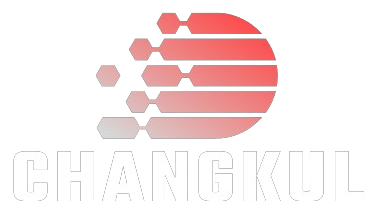Indonesia’s decision to acknowledge former President Soeharto – a figure long related to authoritarian rule and human rights violations – as a national hero has received intense foreign media attention.
International media are highlighting the move as a disturbing revision of history, sparking debates about political memory, accountability and the lasting impact of the New Order.
As commentators around the globe react with alarm, the controversy puts Indonesia within the highlight, raising deeper questions on how nations reconcile progress with their most contentious pasts.
International outrage
Foreign news outlets overwhelmingly described Indonesia’s decision to award former President Soeharto national hero status as a deeply controversial and disturbing move.
The Guardian described the choice as sparking “widespread outrage” and characterised it as an try and whitewash many years of abuses by Soeharto’s authoritarian regime.
Similarly, the Associated Press, as reported by major media outlets resembling the Washington Post, noted that human rights groups see the glory as an try and erase or alleviate painful parts of Indonesia’s past.
These reports highlight the importance of Soeharto’s legacy – his 32-year rule witnessed corruption, censorship and large-scale human rights abuses.
Human rights concerns
The essential thread within the international media is criticism from human rights organizations and researchers. Amnesty International and native groups have been widely cited as warnings that this decision undermines justice and accountability for past atrocities.
ABC News expressed similar concerns, reporting that opponents of the choice accuse government officials of “twisting the facts” in regards to the Soeharto regime.
The Straits Times also reported on protests by civil society groups, which carried banners resembling “Stop the whitewashing of the carnage general”, questioning how a person with such a bloody past could gain heroic recognition.
An indication of lasting authoritarian influence
International academic observers also expressed their views, noting that the move reflects broader political dynamics in Indonesia today.
Tom Pepinsky, a professor of politics at Cornell University, told the media that naming Soeharto a national hero shows how deeply the legacy of authoritarianism continues to be embedded in contemporary Indonesian institutions.
According to Pepinsky, this honor sends a signal: despite the reforms carried out in 1998 and since, elements of the old New Order – its power structures, its elites – remain influential in shaping national narratives.
The Cornell Chronicle echoed this sentiment, stating that the choice just isn’t only symbolic but could normalize the adoption of Soeharto-era values.
A warning from activists
International civic groups have also issued warnings that restoring Soeharto’s status in this fashion risks erasing key parts of Indonesia’s collective memory.
In reports by ABC News and other media, activists argue that honoring Soeharto could possibly be a betrayal of victims of state violence – especially those that died or suffered in consequence of his suppression of dissent and political opposition.
The Star reported accounts from a broad coalition of transnational civil society organizations that condemned the move as a “brazen insult” to survivors of mass violence.
Some critics fear that awarding Soeharto the title of national hero will perpetuate a version of history that sanitizes or ignores his role in atrocities, including the mass murders of the mid-Sixties and other repressive campaigns.
Reflections on Indonesia’s political trajectory
Beyond the immediate controversy, international analysts see the choice as a broader signal about Indonesia’s policy direction.
As reported by Cornell University media, the award is seen as evidence that the shadow of the New Order still looms large, influencing not only how history is remembered but additionally how power is exercised today.
For many foreign observers, the move also raises concerns a few possible rollback of past reforms: democratic reforms, media freedoms and accountability for past wrongs could possibly be in danger if an authoritarian legacy is rehabilitated.
To summarize, concerns in regards to the whitewashing of history, human rights and the lasting impact of authoritarianism dominate the foreign media coverage of Suharto’s rise to the rank of national hero.
The decision not only reopened old wounds – it sparked a world examination of how contemporary Indonesia chooses to recollect, rehabilitate or reject its past.










